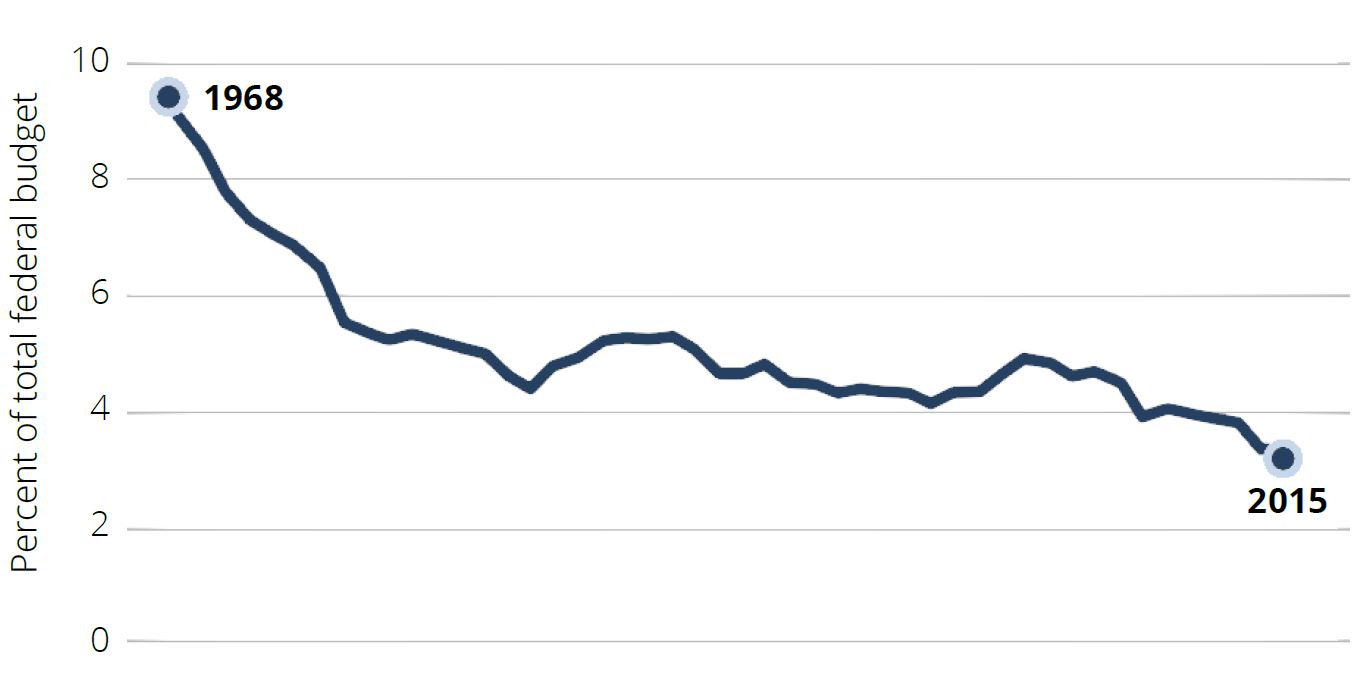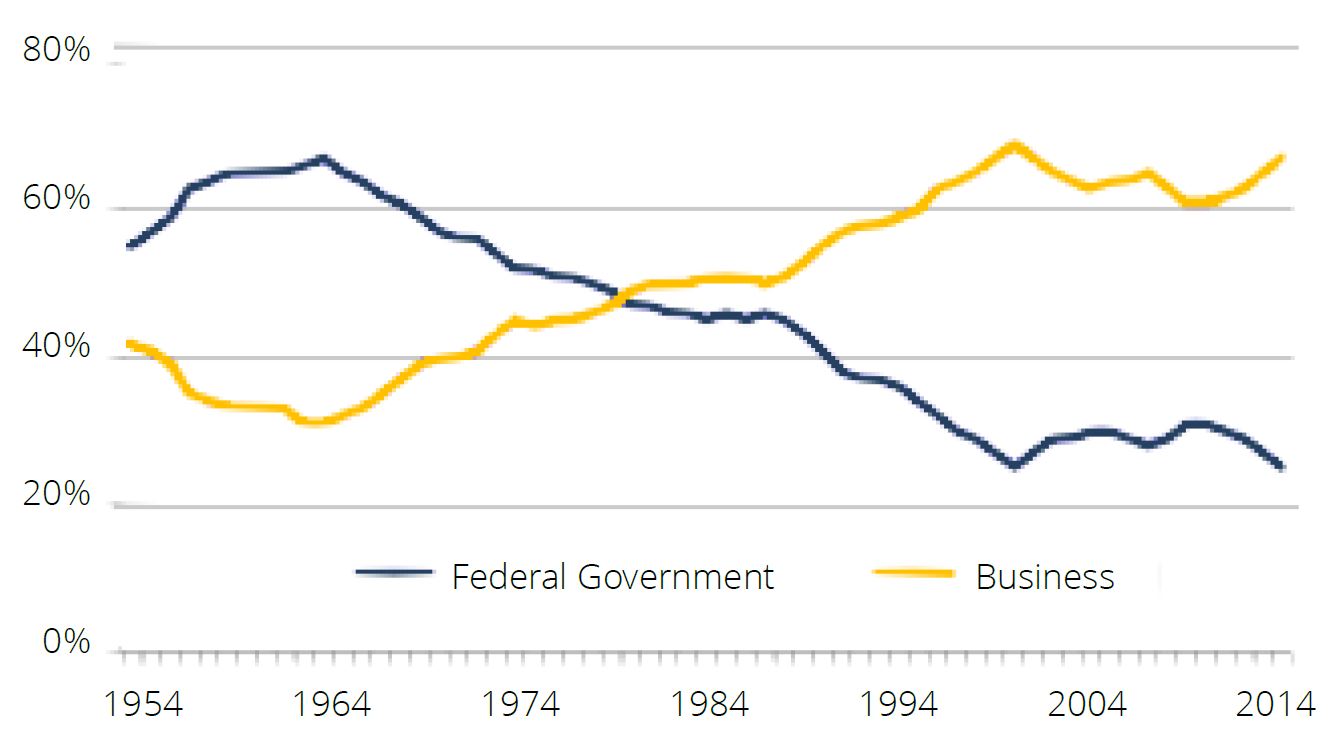Venture Capital Is Killing Capitalism

Ellerston Capital
There was a short-lived segment on radio in Australia a few years back called “defend the indefensible” where a young lawyer was told an “indefensible” topic on the spot and asked to mount a passionate defence of what would seem to be a lost cause. It made for some funny, if not slightly uncomfortable, radio.
"When you have a child, you don’t ask what return you can expect" - Georges Doriot
Well this Perspectives series piece is my attempt at defending what at first glance is an indefensible position and the deliberately provocative title is designed to make readers think. How can any red-blooded capitalist not love and want more Venture Capital? Isn’t Venture Capital (VC) the lifeblood of capitalism – the highest form to aspire to according to our Prime Minister as we try to kickstart productivity to get growth going again?
The inventor of Venture Capital
Duff McDonald in “The Golden Passport: Harvard Business School, the Limits of Capitalism, and the Moral Failure of the MBA Elite” examines the history of HBS and has a fascinating chapter on Harvard’s role in the birth of the VC industry. Actually, pretty much everything in the USA is linked to HBS, including the whole management consulting industry, but that could be the topic of a whole other article. VC arguably began with Georges Frederic Doriot. Born in 1899 in France, he served in the French army in World War I, before heading across the Atlantic to study at Massachusetts Institute of Technology. A fortuitous meeting with the then President of Harvard saw him end up at HBS in 1920 before becoming a teacher there in 1925 and then a full professor in 1929.
But it was during World War II that he found his true calling: Doriot worked with the military to help plan and manage the scaling-up of industrial production and turn the USA into a war machine. He was then promoted to the rank of Brigadier General and received the Distinguished Service Medal. It was then that Doriot found his gift of spotting and funding (through the US military) innovations such as water repellent fabrics and cold weather shoes.
After the war had ended, he founded the American Research and Development Corporation (ARD) in 1946 and raised $3.5m for the first ever Angel round. After starting slowly (a failed de-greasing gun), by the time he died in 1987, ARD had funded some of the great success stories of the prior 30 years: Textron; Teradyne and Digital Equipment Corporation (DEC) – where a $70k stake was turned into $400m at exit.
Doriot’s ARD invested in more than 120 companies, delivering a 17 percent annual return over 21 years. His lieutenants went on to find many more, as did former students such as Thomas Perkins and Frank Caufield, two of the co-founders of Kleiner Perkins Caufield & Byers.
I have taken the time to give some background on Doriot because the context matters. Firstly, the focus on today’s VC is all about how much money VC firms want (expect?) to make out of their investments. It seems logical to want to make money out of your investment but that was not how Doriot saw things – he was “building men and companies”. They were his “children” to use his own words. Returns was an outcome, not an objective per se.
Returns over innovation
The issue with focusing on returns on a set timeline is that it will drive your investments to certain types of funding that can deliver on that objective. These are what I would call “improvers” rather than “innovators”. That is, you take existing ideas and reconstruct them into another form. This isn’t unique to VC – other speculative industries with low hit rates do the same. That is why we get so many Pirates of the Caribbean movies and why drug companies focus more on tweaking and re-registering existing patents.
Which brings me to the second point: true innovation often happens inside the government in some form – be it the military or public universities. Doriot leveraged what he had learnt inside the military into commercialised products.
Let’s consider a very recent and topical example: Uber. Now Uber is a pin-up for the VC industry of how great it is. But what is the innovation of Uber? Leaving aside the illegalities of its operation in many parts of the world, it is an app that saves you calling for a taxi. And how do you use it? On a mobile phone – a mobile phone that built its technology from USSR military engineers and from one of the most extraordinary women of the 20th century in World War II. And how does your Uber find you? Via GPS, a technology that was developed by Doriot’s alma mater, the US Military, in 1973. GPS is worth expanding on because it’s everything that VC is not. Over 30 years, 70 satellites were sent up and over $5bn sunk into a venture with no certainty for any commercial use beyond aircraft. If this had been proposed to a VC firm, I’d suggest to you that we’d still be calling for a taxi from our fixed lines!
One of the perplexing things in the world today is the lack of true innovation and ideas that have completely changed our world – as evidenced by very low productivity growth. Over the last 30 years these have slowed, with productivity dwindling in the last 10-15 years.
Morphic has denounced the role of the Silicon Valley before, but I believe the VC industry is also contributing. Governments have cut back on funding for the military and funding for “basic research” (i.e. you have no idea if it’s going to work out) at universities (Figure 1).
Figure 1 – R&D outlays as share of total Federal budget

Source: American Association for the Advancement of Science
And overall expenditure has fallen whilst more of that has gone to businesses who are more in the “development” than the “research” business (Figure 2).
Figure 2 – Federal and business shares of US R&D expenditures

Source: National Science Foundation
So instead of cold fusion funding that could find a true breakthrough in non-carbon energy production, we get $120m funding for Jucerio and its $700 connected Juicers. Doriot would turn in his grave watching what his protégés have become (Kleiner Perkins Caufield & Byers funded this).
Conclusion
But I cannot blame VC too much, they just take the money given to them to operate to those parameters. If you want to blame someone, blame the Industry Superannuation funds and pension funds using your savings to fund this demise of capitalism.
I suggest instead of tax deductions for VC, there is a special windfall tax of 50% on all VC gains that is directly allocated to basic university funding. VC investors live off the externalities made elsewhere in the system and internalise the gains, economic theory would suggest these externalities be captured.
Because at the current rate, the only R&D funding in the world will be for cat videos.
Want to stay ahead of the crowd? To receive more exclusive content from the Morphic team please visit our website.
2 topics

Chad co-founded Morphic Asset Management in 2012. As a stock picker Chad is also a generalist but has strong regional knowledge of Europe and the Americas. He has also been awarded the CFA Charter.
Expertise

Chad co-founded Morphic Asset Management in 2012. As a stock picker Chad is also a generalist but has strong regional knowledge of Europe and the Americas. He has also been awarded the CFA Charter.
